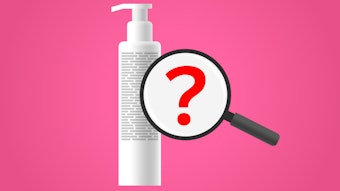Although many cosmetic companies and groups agree there's a need for a uniform regulation of the industry, many legal advisors and industry consultants are saying the Personal Care Products Safety Act has some caveats.
"The allure of the Act for large manufacturers would seemingly be that once the FDA determines that a cosmetic ingredient or nonfunctional constituent is safe, the manufacturer would be in the clear, and could thus avoid potentially more onerous state law requirements," writes attorney Doreen Manchester. "Yet, when put under a magnifier, that notion probably conceals a deeper reality. Only those laws in areas directly addressed by the Act would be preempted; including the determination of safety, the requirements for registration, good manufacturing practices, mandatory recalls, and adverse event reporting. The Act does not preempt laws already in effect when the Act is passed."
Manchester further states the Act will not prevent a State AG or FTC investigation into deceptive practices, nor will it stop lawsuits from advocacy groups or the plaintiffs’ contingency bar, as it expressly does not preempt lawsuits based in product liability, and a host of other common law legal doctrines.
"As we learned from the Supreme Court’s decision in POM Wonderful, FDA regulatory primacy will not insulate cosmetics producers from actions brought by competitors under other federal statutes, including the Lanham Act," Manchester states. "In addition, if the wave of class action food lawsuits in recent years is any lesson, the new law might, at least, in the short term, lead to increased scrutiny of cosmetics marketing practices and greater numbers of class action lawsuits."
The recently introduced Personal Care Products Safety Act, also known as the "Feinstein Bill," the Independent Cosmetic Manufacturers and Distributors (ICMAD) has stated places too large a burden on small business, restrains innovation in the industry and doesn't provide appropriate and significant national uniformity.
Manchester echoed these sentiments.
"For larger cosmetics businesses, the Act puts forth compliance requirements that are only minimally abrasive, easily addressed by in-house experts and outside counsel. For smaller producers, many of which oppose the bill, the effects of the Act could be more invasive," she stated.
"In my own discussions with large firms, the initial interpretation was that large companies were supporting this," Carl Geffken, of Carl Geffken Consultants, told Cosmetics & Toiletries. However, he added that as they learned more about the bill, the lack of a federal preemption has become a concern.
"Everytime a separate state comes up with their own interpretation of the regulation, it makes it extremely complicated," said Geffken.
Take the regulation of microbeads for example. "The regulation is all over the place," said Geffken. Some states have banned microbeads completely, while others have specifically stipulated non-biodegradable microbeads.










